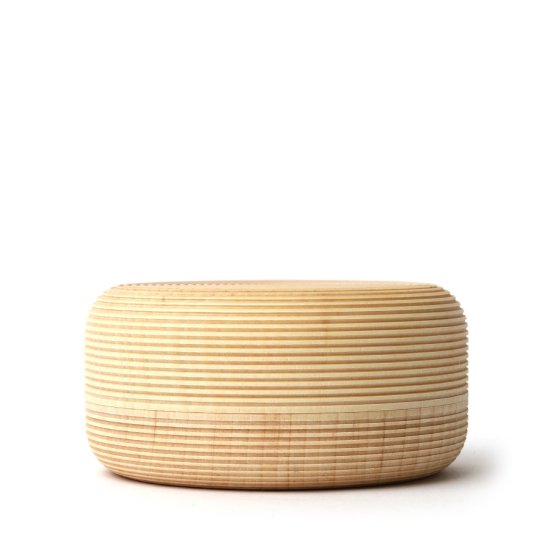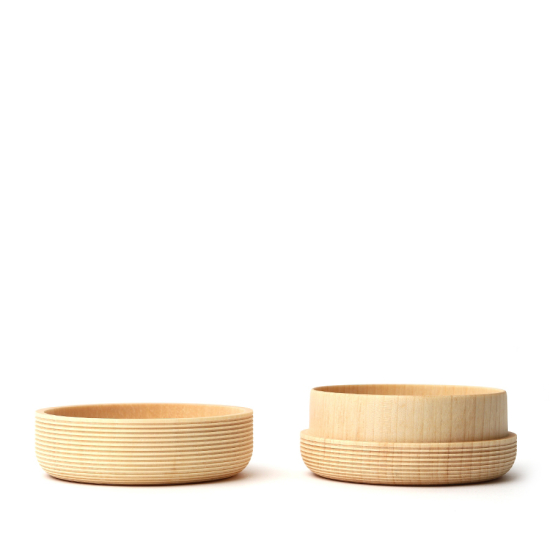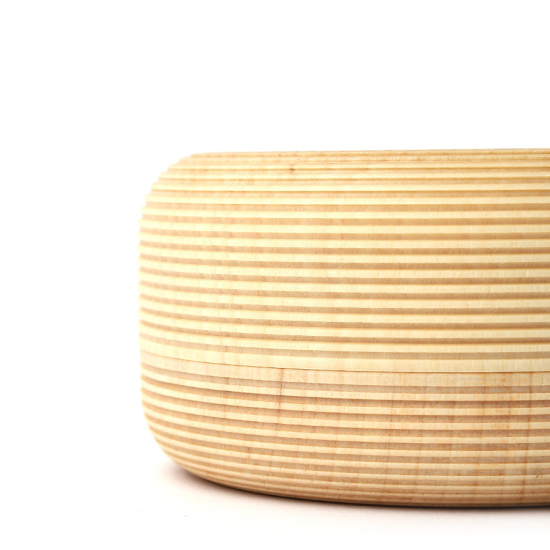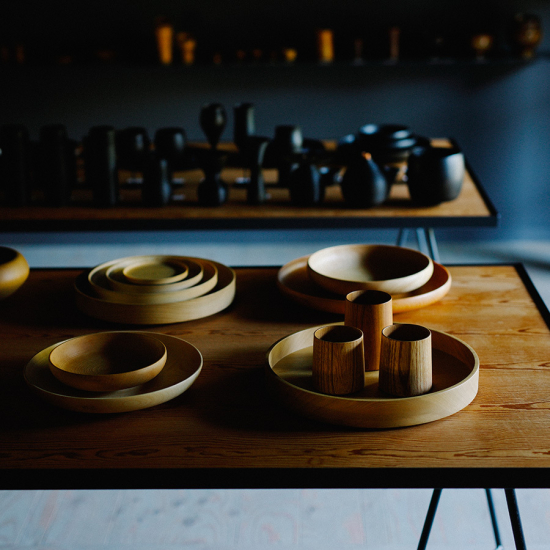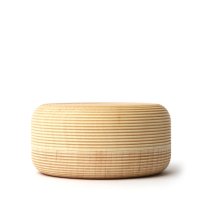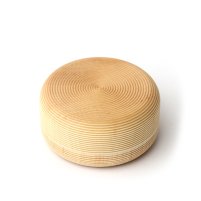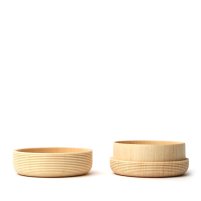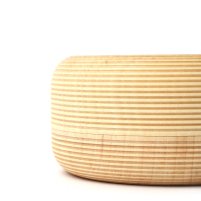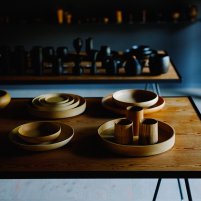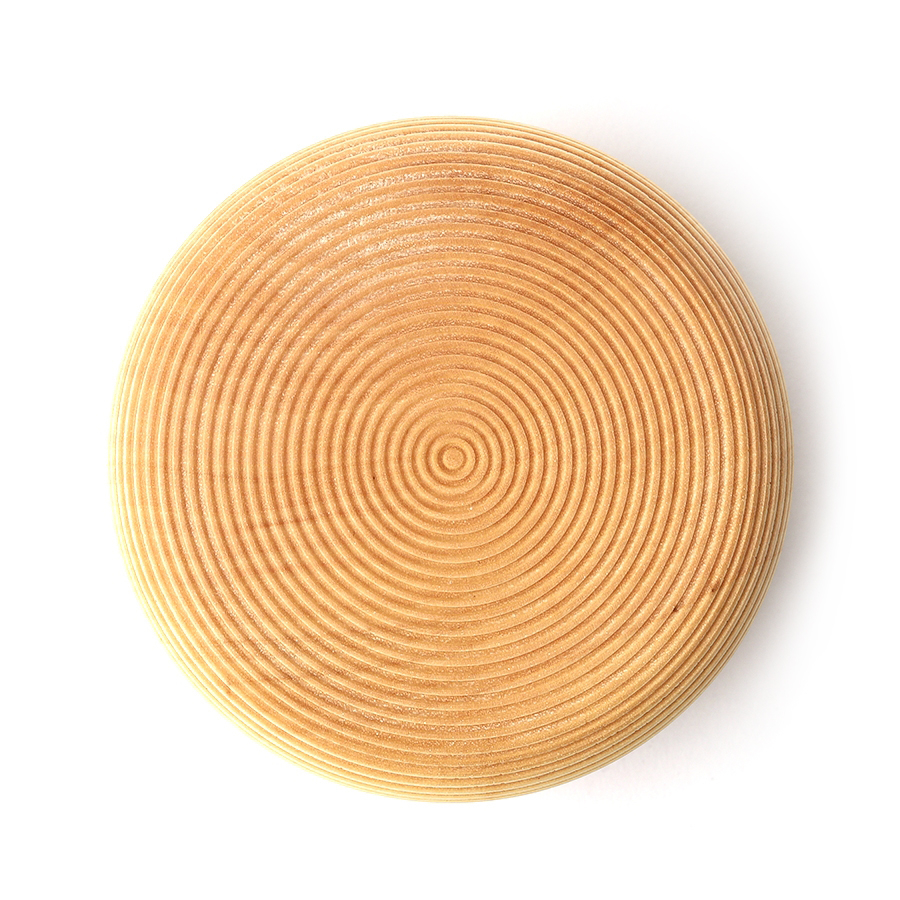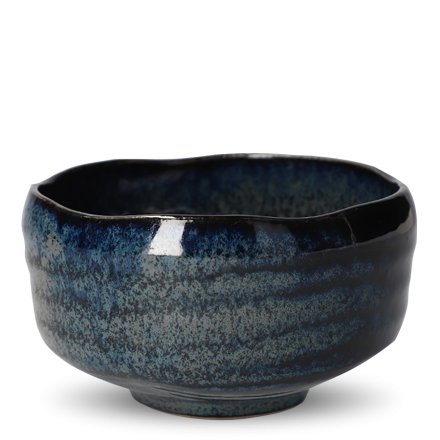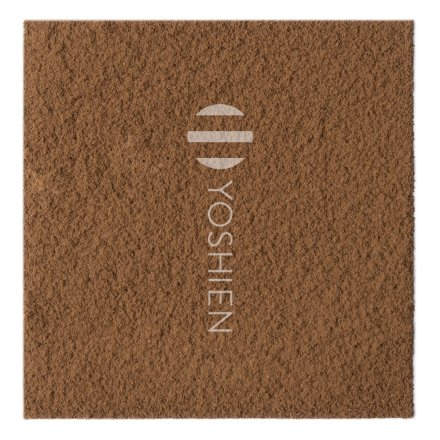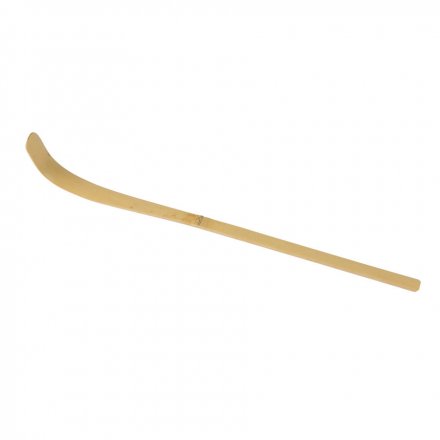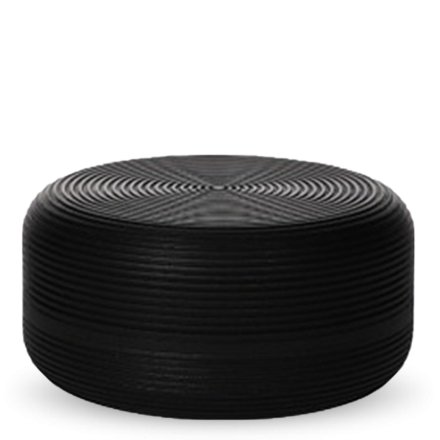Winner of numerous national and international design awards, the traditional woodworking plant GATO MIKIO was founded in Yamanaka Onsen (山中温泉) in 1908 by master woodturner Komakichi Gato. The small hot spring resort (onsen 温泉) was made famous by the travelogue "The Narrow Path to the Deep North" (Oku no Hosomichi 奥の細道), by Japanese poet Basho, which praises the onsen's rejuvenating waters. The humid climate in the region is ideal for working with urushi and Japanese lacquerware. Now in their fourth generation, GATO MIKIO is committed to preserving Yamanaka lacquerware traditions by carefully adapting them to the modern world. The vertical tatekidori cutting method characteristic of Yamanaka lacquerware is used to cut the wood, which makes it more stable and brings out its striking natural patterns.
To further enhance the natural beauty of the wood, GATO MIKIO tends to use the fuki-urushi (拭漆) ("wiping varnish") technique (also known as suri-urushi 摺り漆; "rubbing varnish"), in which a clear varnish is rubbed into the wood. The raw varnish is applied with a brush, then evenly distributed and wiped off. Finally, the wood is carefully polished with sandpaper. This process is repeated five to six times and can take several months, with each coat adding strength and shine to the vessel.
This special attention to material and detail clearly demonstrates the two central principles of the traditional craft. These include the preservation of local heritage and a "return to origin" (genten kaiki 原点回帰). With Yamanaka's heritage as a place of souvenir-making for Onsen visitors in mind, GATO MIKIO creates objects that are not only aesthetically pleasing, but also practical and adapted to modern times. To achieve this, the master craftsmen work with Japanese designers to create new shikki interpretations of traditional-minimalist beauty and modern appeal. Nonetheless, the manufactory is very concerned with preserving Yamanaka shikki traditions and maintaining the local craftsmanship and artisan community.
GATO MIKIO: KARMI Series
GATO MIKIO's KARMI series is based on sensuji (千筋), a decorative "thousand stripe" kashokubiki technique in which extremely fine concentric grooves are carved into the wood as it is turned on a lathe. This intricate technique and pattern are among the many famous Yamanaka kashokubiki, each of which requires special tools that are custom-made by the artisans.
Inspired by poet Basho's philosophy on lightness (karumi 軽み), KARMI embodies the open-hearted minimalism of haiku and allows the simple beauty of the objects to shine. According to Basho, light allows for wabi-sabi; the appreciation of transcient and imperfect beauty. Accordingly, all items in the KARMI collection are designed to grow in character and elegance with every use.



